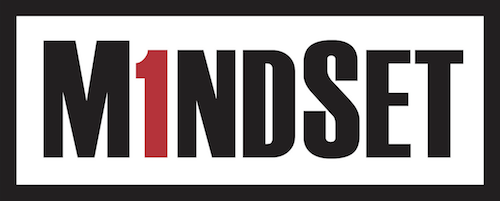I love it when I run across someone who expresses something I agree with, but they explain the reasoning behind the idea more cogently and succinctly than I could. The result is me thinking, “Yeah, what she said!” That happened when I read an interview done with Ginni Rometty, the former CEO of IBM.
She is leading a charge to have us consider the possibility that we are over-credentialing job positions. What is over-credentialing, you ask? Well, it’s the phenomenon of requiring more and more qualifications for jobs that don’t really need them. For example, have you ever seen a job posting that asks for a master’s degree for an entry-level position? Or a job that requires five years of experience in a specific field for a junior role? That’s over-credentialing in action.
Ms. Rometty asserts that for many jobs it no longer makes sense to require a college degree – a requirement that is costing us the opportunity to hire high-quality individuals. She claims that there are fewer and fewer reasons why someone should feel compelled to make a 4-year commitment to sit through required classes, be indoctrinated to the ethos of the campus, cram for tests, and pay high tuition for the privilege; there is nothing preordained as sacrosanct about the accumulation of 120 credit hours from a college or university.
Ms. Rometty estimates that as many as 50% of the jobs in America are today over-credentialed. And in her case, it’s not just talk. When she led IBM, she made big changes: 43% of positions at IBM now no longer require the traditional 4-year diploma. Other examples? After dropping the college degree requirement for several job categories, the Cleveland Clinic soon successfully hired 150 individuals from their own neighborhood who would have otherwise been overlooked, and Delta has dropped its degree requirement for pilots.
In a market where there are more applicants than positions, it may have been reasonable to use the 4-year degree requirement as a gatekeeper for businesses to make sure they were hiring someone who had at least proven the ability to stick with a program long enough to graduate. That may have made some sense in 1970; it makes less sense today. Consider how many options potential employees have today to acquire skills: associate degree programs, vocational schools, focused certification courses, a wealth of online training programs, bootcamps, and mentoring opportunities.
The obvious downside of over-credentialing is that you miss out on hiring individuals who would have been darn good employees. Consider: of all adults over 25 in America, 62% do not hold a 4-year degree. That is a huge number of potential candidates to exclude from consideration before you even start looking.
Now I concede that it is probably beneficial that your physician actually have a medical degree, but often degree requirements, accreditations, or state-required licenses are being used by professional associations more to bar competition than to assure quality service to the end customer. It is all part and parcel of over-credentialing.
My suggestion for positions where you can train new members of your staff is that you look for solid character combined with an openness to new learning. (It is interesting that IBM found that non-degree employees were more likely than degreed employees to seek out more education and development classes offered within the company.) So what is it the company can teach? Well, obviously you need to make sure you have solid training programs to help employees gain the technical skills and abilities they need to perform a given job function. But you need not stop there.
As much as I agree with Ms. Rometty, I do think she is wrong in one regard. She says, “We can teach them the hard skills, but it’s the soft skills they need to come in with.” Nope – we can’t teach character, but if character is solid, we can impact soft skills. In fact, I’m increasingly optimistic that we can help employees to adopt attitudes and behaviors that will set them on a pathway toward greater success both at work and in life. Just as one example, when you first hire an employee, he or she might enter your company having never experienced working in an environment where constructive feedback – aka coaching – is common. For that employee to be successful in your work setting, they need to develop the soft skill of being coachable – something I believe is teachable to the extent an employee can learn to appreciate feedback, use it to drive improvement, and at the highest level, to proactively seek feedback.
At MindSet we have a leadership insight we train called “The Stars You Build” that speaks to this very challenge. On occasion, we have the good fortune to hire a flat-out Star. Such individuals come to you complete with respect to attitude, energy, and commitment. Often, however, employees come to a company with soft skill deficits that prevent them reaching Star status. We should not assume those aspects of the employee’s persona to be immutable.
BetterCulture’s 20 Tenets of Culture program has been developed to build those soft skills of every employee. Combining an online assessment with periodic coaching videos delivered directly to each employee throughout the year, 20 Tenets is designed to not only improve the culture of the company, but to help individual employees adopt behaviors and attitudes that will help them find more success.
Star employees pull other employees up toward greater success, but the best companies are seeing the benefit of helping the Star employees with that work! These companies are encouraging the growth of employee soft skills by offering programs like 20 Tenets. The result is the company standing shoulder-to-shoulder with their Star employees to help pull more employees up into that Star status group.
So when you (a) eliminate credentialing requirements that needlessly bar individuals from being considered for hire, (b) are intentional in your efforts to help employees develop the soft skills that will make them more successful, and (c) give employees the opportunity to work in an environment where great role models (Stars) rule the day…well, you will have a setting where employees will grow and your business will thrive.

Founder of MindSet, LLC.

